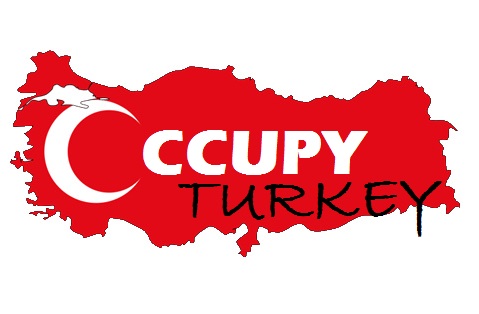
Much of the political scene is engrossed by new national Occupy Turkey movement as political force
Judy’s Notebook: Reflecting on Turkey and Its Unrest
PBS News Hour | Democracy, elections and voting at Democracy Chronicles
By: Judy Woodruff
Protesters gather on Taksim Square during a demonstration against the government in Istanbul on June 25, 2013. Photo by Bulent Kilic/ AFP/ Getty Images.
If you’re lucky enough to travel abroad, your eyes can be opened in ways that books, television and the Internet can’t match.
I just returned from Turkey. The trip mainly was to see the spectacular historical sites: churches and mosques in Istanbul with breathtaking art and architecture, dating back 1,600 years. Near the Aegean coast, in Ephesus, archeologists have only begun to excavate settlements as old as 5,600 BCE. That leaves to our imagination what preceded the stunning Celsus Library and terraced residences they’ve uncovered in this place, important in ancient Greece and the Roman Empire, and well known from the Bible’s New Testament.
It was all fascinating, too much to absorb in a matter of a few days, much like the politics of the Turkey of 2013. My visit coincided with a somewhat subdued phase of the massive public protests recently staged against Prime Minister Recep Tayyip Erdogan.
After leading the country to impressive economic growth, Erdogan is now trying to wrench it away from its modern secular identity, toward a more authoritarian and aggressively Islamist government and way of life. Tourism is down because of international publicity over heavy-handed police crackdowns on demonstrations that resulted in thousands being wounded and four killed. Security forces have closed off Gezi Park next to Taksim Square, a city space that has been the center of public anger.
Taxi drivers told us the protests “were nothing” and are now over. But one night while we were in Istanbul, almost 100,000 people stood silently next to Taksim, making their point in a powerful way that wasn’t covered by the Turkish news media.
Polls show much of the Turkish public isn’t on board with the changes Erdogan wants to make — that women have at least three children and that alcohol should be limited and eventually banned. This on top of an authoritarian rule that has led to more journalists imprisoned than in any other country in the world.
Many of this summer’s demonstrators are young and well-educated. But their ranks include labor workers and senior citizens, women and men; in fact, representing almost every corner of the popular spectrum.
Turkish novelist Elif Shafak, writing in Britain’s Guardian newspaper this week says the protest movement sparked by Erdogan “blurs religious and ideological boundaries.” She describes gay rights activists in solidarity with Kurdish rights advocates, and a campaign that has brought liberal, leftist and secularist women academics and journalists together, to sign a petition “to stop discrimination in the public space against headscarved women.”
She explains that in Turkey, women who wear a scarf “cannot become a lawyer or a teacher, or perform public service. The petitioners are asking for equality for all women, regardless of dress codes.”
Shafak observes, “In a country where people have been divided into cultural ghettoes for too long, this is unprecedented.” She speculates that if Erdogan doesn’t change course, his policies could unite opponents who until now haven’t been able to find common political cause.
Photo by Bulent Kilic/ AFP/ Getty Images.
If you’re lucky enough to travel abroad, your eyes
AKP MPs walk out of US reception over envoy’s critical Gezi remarks. An #OccupyGezi roundup
Ruling party MPs walk out of US reception over envoy’s critical Gezi remarks The AKP lawmakers reacted against the ambassador Ricciardone for his highly political remarks over the three-week long Gezi Park demonstrations Generation Gap.
Leave a Reply